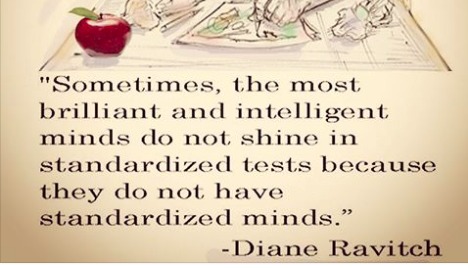Why Normal Doesn't Move Mountains.

I grew up having it drilled into me that I wasn’t normal. In public school, the principal suggested I forget furthering my academic education and learn small engine repair. Maybe he felt guilty afterwards. He decided to let me join the final school dance committee. There was no money. Nobody had any ideas. So I went home and wrote to all the soft drink companies. I did the same with the grocery stores. Four days later, ten cases of soft drinks were delivered to my house, twenty packages of hot dogs and the equivalent number of buns. I also supplied the band (playing rhythm guitar).
In high school, I had one of the lowest CAAT scores. After graduation, with no hope of getting into a university, I took a year off, worked in factories, then became an assistant manager at a shoe store. When the manager left at five o’clock, I brought out a stereo, turned up the music (disco), and told my staff to have fun. We had the best three-month sales figures of our franchise.
Why am I telling you this? Because, in each instance, nobody ever recognized my non-standardized thinking. The principal — who told my parents I should learn small engine repair — never sent them a note saying: “Your kid made our graduation dance.” The shoe store never sent a message to the other franchisees, saying: “Whatever that kid’s doing, do the same.”
Every day, we see notices of promotion, people getting press, people getting recognized. More often than not, they get it for being “normal.” The only time we perk up to the “abnormal” is when someone like Richard Branson tell us he’s always followed “the opposite path.”
We admire Richard Branson. He’s done amazing things. Yet how many of us ever try following in his footsteps, taking that “opposite path”?
Why is it we watch movies filled with underdogs? Why do we live vicariously through others? On the Big Bang Theory, Leonard admonishes the gang for spending hours and hours playing super heroes yet, in their real lives, they can’t even comprehend doing anything brave.
How many of us do anything brave? How often do we fall back to “normal,” saying: “I’ve got my family to think about, the mortgage, the payments on the car”? How many of us have built a wall of responsibility, justifying why we can’t — or won’t — move outside our comfort zones?
In Dr. Seuss’s “Oh, The Places You’ll Go,” he tells children “You have brains in your head, you have feet in your shoes, you can steer yourself any direction you choose.” He extols confidence, saying: “You’re the best of the best,” something parents have taken to heart. They tell their children the same thing, echoing Seuss’s last words: “KID, YOU’LL MOVE MOUNTAINS!”
It’s one hell of a pep talk, yet Seuss isn’t exactly telling children to be different. Parents steer clear of the different aspect as well. We have a generation of young people, expecting to “MOVE MOUNTAINS” yet, as Jack MacKenzie, president of Magid Generational Strategies, pointed out, what millennials tend to share is “a desire to compromise and a level of optimism that most people think is almost silly.”
We tell young people they can “MOVE MOUNTAINS,” forgetting that it takes more than “optimism” and a “desire to compromise.” To quote Richard Branson: “You have to fight tremendous resistance.” That can’t be done with optimism (silly or not). It takes a great deal of originality and, above all, guts.
John Manley, president of the Canadian Council of Chief Executives, pointed out in a speech recently that young people “lack the ability to think critically or work in teams.”
When Manley talks about the ability to “work in teams,” it isn’t idea- building, it’s consensus-building. This is supposed to grow out of the chief executives’ mandate. If you accept, believe and process their mandate, then you’re what Manley considers “employable.”
Stagnant economies are the product of this kind of thinking. Agreement is standardized. Everything runs along until we find ourselves in another recession. Then the Manleys of the world blame it on declining markets. Richard Branson will tell you there are no declining markets, only narrow thinking (standardized) that reduces the ability to see opportunities.
When I was selling shoes, we were in the midst of a recession. Consumer confidence was low. Stores around me had sales galore. We stayed away from flat 20% off specials. It showed desperation. We turned up the music. Our sales grew right through January, what the Merchant’s Association called that year “A disastrous month for the retail industry.”
I hear people talk about how “everyone’s opinion should be worth the same.” All this does is produce sameness. In a room of ten people, 90% are going to be normal. They expect that of themselves. They follow party line. They stay within the parameters of acceptable thought. At the end of the meeting, they congratulate themselves on agreeing with everyone.
We place a lot of emphasis on “normal” yet, by it’s very definition, “normal” doesn’t allow for expansion.
Let’s look at the definition of “normal”: “Conforming to a standard; usual, typical or expected. Synonyms: usual, standard, ordinary, customary, conventional, accustomed, expected, wanted.”
In other words, “normal” is average, it’s ordinary. If we’re critical of young people today, aren’t we the guilty ones? Didn’t we turn them into silly optimists, while extolling the virtues of being average?
One woman, named Caitlin, wrote in her blog/post: “I am an advocate for average. Average is wonderful; a cause worthy of advocacy…Get out there in your minivans with your 2.5 kids and designer dog, and raise awareness for the average! Be an advocate for your own, wonderfully middling life. Speak out for women in the middle everywhere! We are average and we’re happy!”
Caitlin — and many others — may be happy with “average,” but it’s hard to imagine them reading Dr. Seuss to their children, saying, “KID, YOU’LL MOVE MOUNTAINS!” It’s also hard to explain to people like Caitlin that “average” is getting us nowhere in this world. Two back-to-back recessions should convince us of that.
If we’re not teaching guts and non-standardized thinking, we’re not moving mountains. We’re waiting for someone else to do it. We’re on the sidelines, offering a cheering section to whomever does move mountains. But it won’t be us. Or our children. Or our children’s children.
We’re too busy being normal and accepted — and ordinary.
What do you think? Have we become a society happy with “average”? Will we ever be the ones moving mountains? Let me know at: rcormack@rogers.com
Robert Cormack is a freelance copywriter, novelist and blogger. His first novel “You Can Lead a Horse to Water (But You Can’t Make It Scuba Dive)” is available online and at most major bookstores. For more details, go to Yucca Publishing or Skyhorse Press.

Articles from Robert Cormack
View blog
Or is it us? (It's us). · “I intend to live forever, or die trying.” Groucho Marx · I didn’t want to ...

All I did was write the first Canadian rock jingle. · I still remember how we wore our jeans with le ...

Without selling yourself short. · “We marry, have kids, do our jobs, provide food, education. Job do ...
Related professionals
You may be interested in these jobs
-
Glass Operations Mechanic
1 month ago
Opta Group Hamilton, ONThe Glass Operations Mechanic will report directly to the Glass Operations Supervisor and is responsible for performing a variety of maintenance and production tasks to assist with glass operations. · ...
-
Transaction Services Manager
1 month ago
PwC Canada Toronto, OntarioA career in our Financial Due Diligence practice will provide you the opportunity to help organisations realise value from potential mergers, · acquisitions, · divestitures · and capital markets transactions.Perform in-depth · financial analysis of client and target financial in ...
-
Google Ads Media Buyer
3 weeks ago
FreelanceJobsWe run a lead gen agency for home services and real estate businesses. We help these companies get customers through Meta ads and automated systems. Business is growing fast. · We need to scale our Google Ads operation because clients are asking us to run their campaigns yet? · W ...


Comments
Susan 🐝 Rooks, The Grammar Goddess
9 years ago#2
don kerr
9 years ago#1